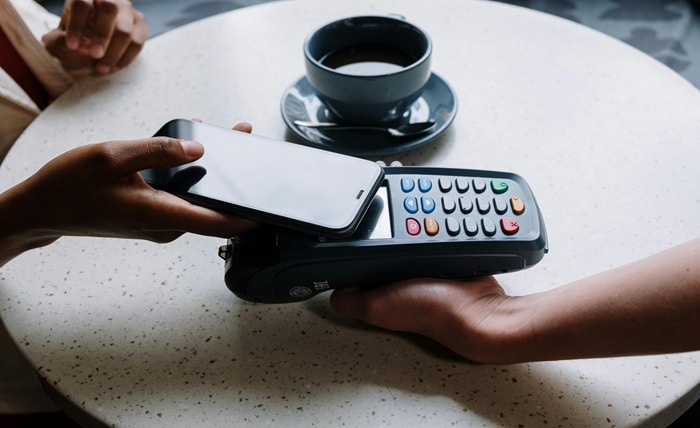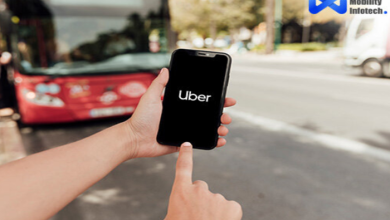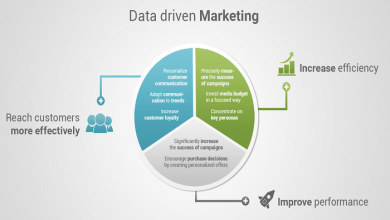
To stay competitive, brands are turning to mobile solutions that optimize on-the-go ordering and elevate the modern customer experience.
In the fast-paced, convenience-driven world we live in, customers expect immediacy, simplicity, and efficiency in every interaction. Whether they’re placing orders for groceries, grabbing a cup of coffee, or buying last-minute holiday gifts, today’s consumers expect businesses to deliver a seamless experience—often at the tap of a screen. To stay competitive, brands are turning to mobile solutions that optimize on-the-go ordering and elevate the modern customer experience.
The Evolution of On-the-Go Ordering
Gone are the days when on-the-go ordering meant calling ahead to place a pick-up request or physically lining up in-store. Nowadays, people want to order and pay for items without breaking stride. This shift has prompted a rapid evolution in customer-facing technology:
- Mobile Apps
Branded mobile apps offer a direct line between businesses and customers. From loyalty rewards to personalized offers, these apps encourage continued engagement and streamline the checkout process. - Responsive Websites
With responsive web design, customers can easily navigate a store’s online ordering page on any device. This ensures that whether someone is on a smartphone, tablet, or laptop, the experience remains intuitive and visually consistent. - QR Code Ordering
Once a novelty, scanning QR codes is now a mainstream method for quickly pulling up menus or product pages. QR codes eliminate the need for customers to scroll or search, and they streamline ordering by directing users to an order form, payment portal, or item selection page.
Why Mobile Solutions Are Critical
Implementing mobile solutions for on-the-go ordering is not just a passing trend. It’s a fundamental part of meeting modern consumer expectations and driving business success. Here’s why:
- Speed and Efficiency
Mobile platforms reduce wait times and eliminate the need for extensive employee-customer interaction during busy hours. This translates into faster turnover, increased sales, and happier customers. - Personalization
By collecting user data with consent, businesses can tailor product recommendations, promotional offers, and user experiences. Customized push notifications and suggestions keep your brand top of mind and bring customers back for repeat purchases. - Enhanced Customer Satisfaction
People love a hassle-free experience. For restaurants, this could mean enabling table-side ordering or curb side pickup. For retail, it might involve making it easy for customers to check local inventory before ordering in-app. In all cases, mobile solutions help you deliver on customer expectations. - Real-Time Updates
Mobile notifications and text alerts provide up-to-the-minute communication about order status, special deals, or product availability. This transparency builds trust and fosters loyalty among customers.
Industries Leading the Way
Certain industries have championed on-the-go ordering with remarkable success:
- Food & Beverage: Fast-food chains, cafes, and quick-service restaurants use mobile apps and integrated loyalty programs to speed up service and cater to busy patrons.
- Grocery: Many grocery stores now offer in-app ordering for curbside pickup or home delivery. Customers can create shopping lists, view special deals, and place orders—all on their phones.
- Retail & E-commerce: Brick-and-mortar shops are pivoting to “click-and-collect” models, where customers order online and pick up in store, while e-commerce giants have perfected mobile browsing and seamless checkouts.
Best Practices for Implementing Mobile Solutions
- Keep it Simple
Overcomplicating the ordering process can frustrate users. Streamline everything: navigation, product selection, checkout, and payment. The fewer steps, the better. - Optimize for All Devices
While dedicated mobile apps are fantastic for driving loyalty, ensure your website is responsive and user-friendly. Customers might begin an order on their phone and complete it on a tablet or computer—make sure the transition is smooth. - Ensure Secure Transactions
Prioritize data security. Use encryption, secure payment gateways, and adhere to best practices for handling sensitive financial information. Customers should feel safe sharing their details. - Leverage Analytics
Monitor your metrics—conversion rates, abandoned carts, and customer feedback. Continuous analysis will help refine your approach and improve the user experience over time. - Regularly Update and Innovate
Technology changes rapidly. Keep your mobile solutions current by adding new features, fixing bugs, and improving speed. Gather user feedback often to stay ahead of evolving expectations.
The Future of On-the-Go Ordering
As technology pushes boundaries, we can expect on-the-go ordering to become even more intuitive. Innovations like voice-activated ordering, AI-driven product recommendations, and augmented reality previews will further personalize and simplify the customer journey. Today’s connected consumers will only grow more dependent on the convenience of mobile solutions, creating immense opportunities for forward-thinking businesses.
Final Thoughts
On-the-go ordering is no longer just a trendy perk—it’s a cornerstone of modern customer engagement. By embracing mobile solutions that simplify purchasing processes and anticipate user needs, businesses can boost sales, increase loyalty, and stand out in a crowded marketplace. The technology to facilitate seamless orders is already here; the challenge now is to integrate these solutions in a way that’s intuitive, flexible, and consistently satisfying for customers.
In this age of instant gratification, the brands that thrive will be the ones that successfully meet customers where they are—on their phones, tablets, and other devices—and deliver an effortless experience from the first click to the final purchase.




